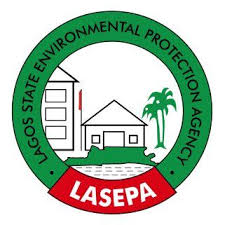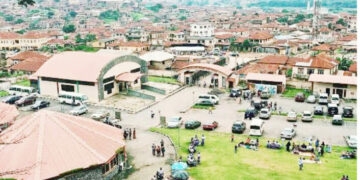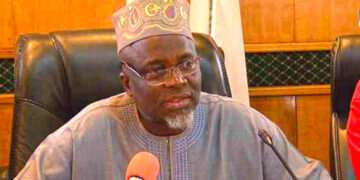At the weekend, the Lagos State Environmental Protection Agency (LASEPA) said it is no longer business regarding the state environment as usual. In the last year, it has sealed off 352 establishments across various parts of Lagos State in its quest to tackle noise pollution and other environmental violations.
The general manager of Lagos State Environmental Protection Agency (LASEPA), Dr Babatunde Ajayi, who disclosed this to journalists in his office while giving a year report of his stewardship in the agency, said in tackling environmental problems emanating from religious, industrial and residential facilities his agency has strengthened enforcement mechanism that is primarily directed at prevention of pollution and other environmental degradation.
He said, ‘’Enforcement is one very effective and exciting way of advocacy. We have done that very efficiently. We have also done a lot of advocacy events, engaging the public, industries, religious organisations, and different categories of people, the entertainment industry in particular, from where we have the famous noise problem.
“So I usually say that noise pollution is just five per cent of our mandate, but it takes 90 per cent of our time because it touches everybody. It may not touch every single person, but it is important in the scheme of things and in making Lagos a very balanced city.”
Dwelling on the projects executed in the period under review, Ajayi said, ‘’ The biggest and most important project we have executed is to launch the Lagos Carbon registry. The carbon registry puts us on a pedestal that enables us to trade carbon globally like other cities worldwide. It helps document our carbon; we can tell whether we are saving or re-emitting. It cuts across the transport, agricultural, industrial, and even homes in terms of generators and cooking emissions.
‘’In measuring emissions, we ensure these things are adequately documented for Lagos. I think that is a giant stride, and we launched it recently at the Lagos Sustainability Summit. To move that further, we have doubled our air quality monitors. So, in Nigeria, no city has up to five air quality monitors. But Lagos has 43, rising from 20 we had when I resumed. We have doubled the number of our air monitors. By the end of the year, we would have hit about 60 air monitors.
‘’It will put us on a global stage in the sense that as you come into the city, you have verifiable data on air quality. Air Quality is essential for many things, especially for health matters. For instance, if you are asthmatic and you live in an area with bad air quality, you are going to have many episodes or more attacks because the health quality is bad. For people who have respiratory health problems, air quality is essential.
‘’We are doing a lot of these things to stem health problems. It has paid off because the more money the government spends on the environment, the reduction in the cost of healthcare; when you measure air quality, you stem the tide on why it is polluted. Then, you reduce sicknesses in the community. We release air quality data every Monday on our social media platforms; we tell people what the air quality is like in different areas and where it is good and bad. We publish it, and what we then do is trace the source, resolve the problems.’’
The LASEPA boss said they also do many things on clean energy, converting from one energy form to another.
‘’Internally, we have also digitised our processes so that people can apply for permits on our websites, such that on the internet you can download our laws, you can even see what our responsibilities are and what you can hold us responsible for,’’ he said.





